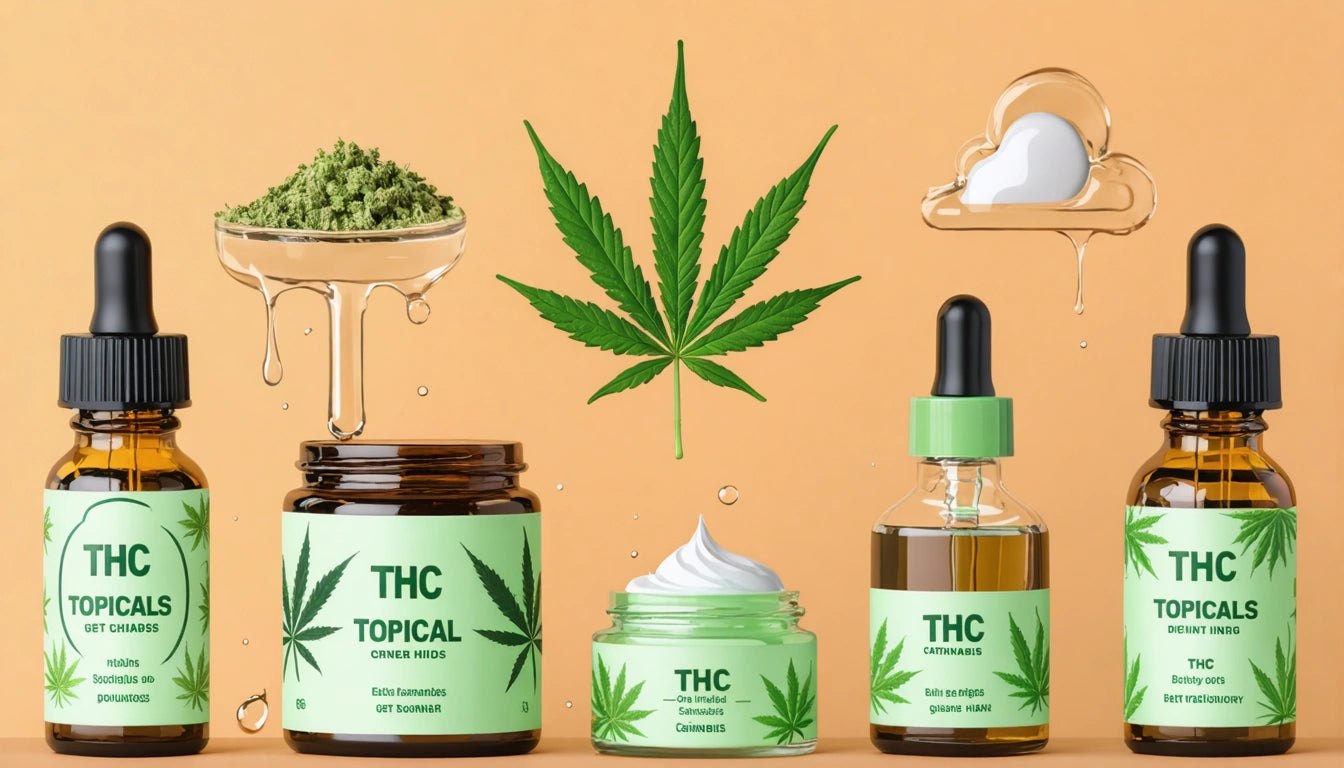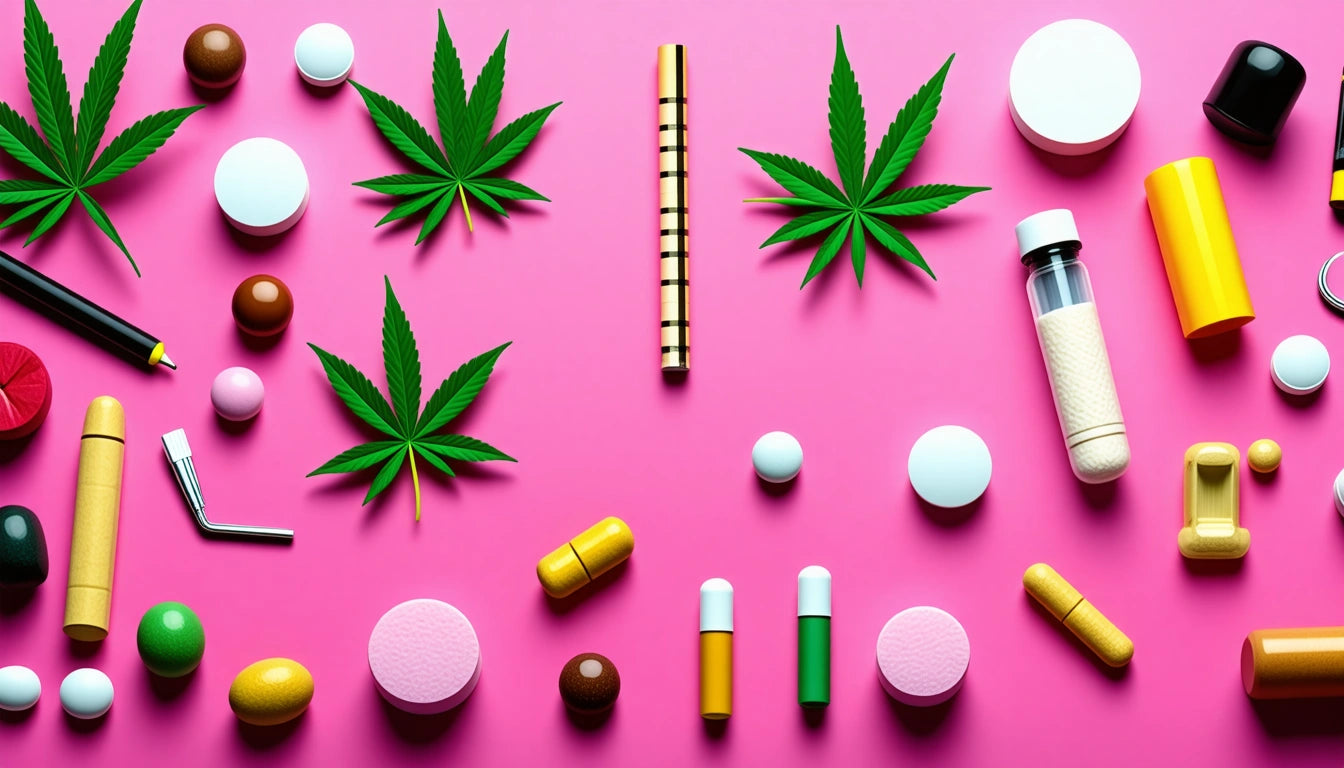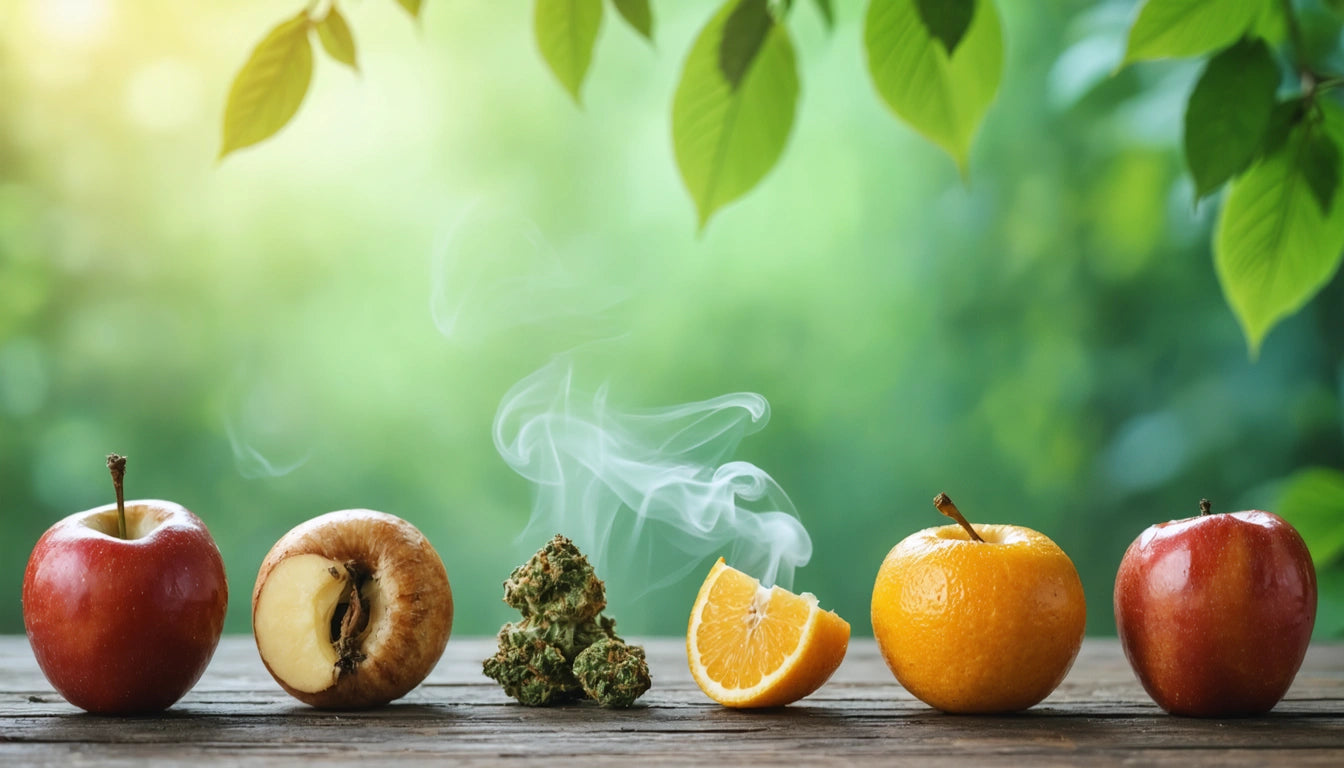- Understanding THC Topicals: What They Are and How They Work
- Do THC Topicals Get You High? The Science Behind Skin Absorption
- How THC Lotions Work: Targeting Cannabinoid Receptors
- Benefits of THC Topicals: Beyond the Psychoactive Effects
- Factors Affecting Topical Efficacy: What Makes THC Creams Work Better
- Future Applications and Research: Where THC Topicals Are Heading
Do THC Topicals Get You High and How Do They Work?
Cannabis-infused topicals have surged in popularity as more consumers seek localized relief without psychoactive effects. One of the most common questions surrounding these products is whether THC lotions get you high. This comprehensive guide explores how THC topicals interact with your body, their effectiveness, and what science tells us about their absorption through the skin.
Understanding THC Topicals: What They Are and How They Work
THC topicals are cannabis-infused products designed for external application, including lotions, balms, creams, and oils. Unlike other cannabis products, these formulations are meant to be applied directly to the skin rather than ingested or inhaled.
When applied topically, THC interacts primarily with cannabinoid receptors in the skin, muscles, and local tissues. This localized interaction is fundamentally different from how inhaled or ingested THC works, as detailed in this comprehensive guide on THC effects.
Do THC Topicals Get You High? The Science Behind Skin Absorption
The short answer is: typically, no. THC topicals generally do not produce psychoactive effects or the feeling of being "high." This is because of how our skin functions as a barrier.
According to research on THC absorption through skin, the cannabinoid molecules in standard topicals have difficulty penetrating deep enough to reach the bloodstream. The skin's lipid barrier prevents most of the THC from entering systemic circulation, which is necessary to produce psychoactive effects.
While some studies have examined transdermal delivery systems specifically designed to enhance penetration, standard THC lotions and creams remain localized to the application area, providing targeted relief without cerebral effects.
Exceptions and Special Formulations
There are some important exceptions to be aware of:
- Transdermal patches are specifically designed to deliver cannabinoids into the bloodstream and may cause mild psychoactive effects
- Products with very high THC concentrations applied to thin-skinned areas might allow minimal systemic absorption
- Topicals applied to mucous membranes or broken skin may increase absorption
How THC Lotions Work: Targeting Cannabinoid Receptors
THC lotions work by interacting with the endocannabinoid system (ECS) receptors in the skin and underlying tissues. The human body contains two primary cannabinoid receptors: CB1 (predominantly in the brain and central nervous system) and CB2 (primarily in peripheral tissues and immune cells).
When you apply THC lotion, the cannabinoids bind primarily to CB2 receptors in the skin, muscle tissues, and local nerve endings. This interaction can help regulate pain signaling, inflammation, and other localized processes without affecting CB1 receptors in the brain that produce the feeling of being high.
For those interested in understanding THC's broader effects, it's important to note that the mechanism of action differs significantly between topical application and other consumption methods.
Benefits of THC Topicals: Beyond the Psychoactive Effects
Many users report significant benefits from THC topicals even without psychoactive effects. These benefits include:
- Localized pain relief for arthritis, muscle soreness, and joint discomfort
- Reduced inflammation in specific areas
- Skin condition management (eczema, psoriasis, etc.)
- Muscle relaxation and tension relief
The effectiveness of these products varies based on their formulation, concentration, and individual factors. Many users find that proper storage with humidity control solutions helps maintain the potency and effectiveness of their cannabis products, including topicals, by preserving terpenes and cannabinoids that might otherwise degrade.
Factors Affecting Topical Efficacy: What Makes THC Creams Work Better
Several factors influence how well THC topicals work:
Concentration and Formulation
Higher THC concentrations generally provide stronger effects, though there's a point of diminishing returns. Additionally, the carrier ingredients matter significantly. Fat-soluble carriers like coconut oil can help cannabinoids penetrate more effectively than water-based formulations.
Entourage Effect
Full-spectrum topicals containing multiple cannabinoids (THC, CBD, CBG) and terpenes often work better than isolated THC. This synergistic interaction, known as the entourage effect, enhances therapeutic potential.
Application Area
Thinner skin areas (like wrists or temples) may allow for better absorption than thicker skin areas (like palms or soles). Additionally, areas with higher concentrations of cannabinoid receptors may respond more noticeably to topical applications.
For those concerned about THC showing up in blood tests, standard topical use is unlikely to trigger positive results in drug screenings because minimal THC enters the bloodstream.
Future Applications and Research: Where THC Topicals Are Heading
Research into THC topicals continues to evolve, with promising developments in several areas:
- Enhanced delivery systems that improve penetration without systemic absorption
- Targeted formulations for specific conditions like neuropathic pain
- Combination therapies with other active ingredients
- More precise dosing mechanisms for consistent results
As our understanding of the endocannabinoid system expands, so too will the sophistication of topical cannabis products. For consumers wondering "does topical THC work?" or "what does THC lotion do? the answer increasingly depends on the specific formulation, application method, and individual physiology.
While THC topicals don't typically get you high, they offer a valuable option for localized relief without the cognitive effects associated with other consumption methods. As research progresses, we can expect even more effective and targeted topical cannabis solutions in the future.











Leave a comment
All comments are moderated before being published.
This site is protected by hCaptcha and the hCaptcha Privacy Policy and Terms of Service apply.